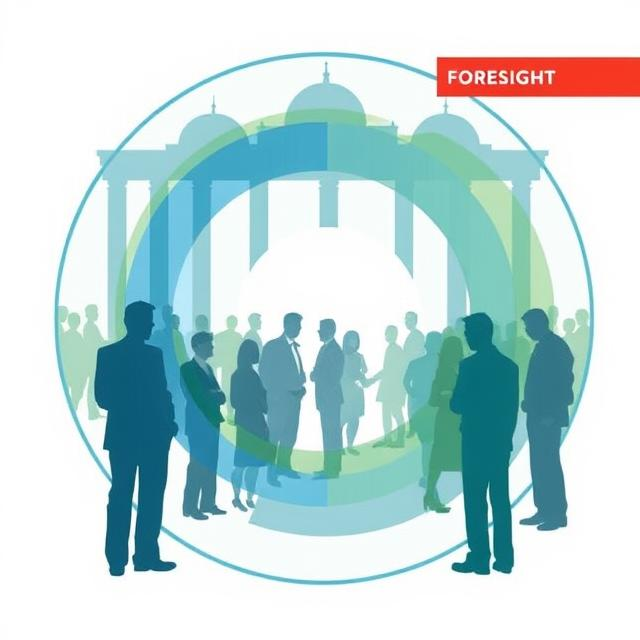The statement, “While formulating public policies a civil servant must safely focus on the public welfare and while implementing those policies he must have a foresight to infer possible unexpected consequences,” holds significant merit in the context of public administration. This statement emphasizes two critical aspects of a civil servant’s role: formulating policies that prioritize the public welfare and implementing them with foresight to anticipate unforeseen consequences. These aspects are crucial in ensuring that the policies developed are effective, equitable, and sustainable.
In this discussion, we will explore why it is important for civil servants to focus on public welfare while formulating policies, and why foresight in implementation is essential to prevent negative unintended outcomes. We will also examine the factors that influence these processes and provide arguments and justifications for the statement.
1. The Focus on Public Welfare in Policy Formulation
Public policies are the foundation upon which the governance and functioning of society are based. The primary purpose of public policies is to address societal problems, improve public services, and promote the well-being of citizens. As such, it is imperative that civil servants who are involved in the policy formulation process prioritize public welfare.
a. Ensuring Fairness and Equity
Civil servants are entrusted with the responsibility of promoting the public good. This means that they must formulate policies that ensure fairness, equity, and social justice for all members of society, especially marginalized and vulnerable groups. When formulating policies, civil servants should consider the diverse needs of the population and strive to create an inclusive framework that addresses disparities in access to resources, services, and opportunities.
For instance, policies related to healthcare, education, housing, and employment should be designed to benefit everyone, regardless of their socio-economic status, gender, or ethnicity. A civil servant who focuses on public welfare will be committed to designing policies that do not inadvertently exacerbate inequalities but rather promote social cohesion and well-being.
b. Aligning with Legal and Ethical Standards
Public policies must also align with legal and ethical standards, upholding the rule of law and ensuring that citizens’ rights are respected and protected. Civil servants must ensure that policies do not violate the principles of justice, human dignity, and fundamental freedoms. In situations where policies may conflict with these standards, civil servants must take steps to rectify such conflicts or advocate for policy changes.
An example of this can be seen in the formulation of anti-discrimination policies in many countries, which aim to promote equal treatment of all citizens irrespective of their race, gender, or disability. The civil servant responsible for such policies must have a deep understanding of human rights laws and work to ensure that public policies do not infringe upon the rights of any group.
c. Sustainability in Policy Design
Long-term sustainability is another critical consideration when formulating policies. Civil servants must recognize that policies must not only address immediate needs but should also contribute to the sustainable development of society. Sustainable policies take into account the environmental, economic, and social impacts of decisions.
For example, policies related to energy use, natural resource management, and climate change must be designed with foresight to balance the needs of present and future generations. A focus on sustainability helps prevent policies that may yield short-term benefits but lead to long-term harm, such as environmental degradation or financial instability.
2. The Role of Foresight in Policy Implementation
Policy implementation is the process by which formulated policies are put into action. Civil servants must be proactive in identifying and mitigating the potential risks and unintended consequences that may arise when policies are put into practice. A failure to consider these consequences can undermine the effectiveness of the policy and even cause harm to the public.
a. Anticipating Unforeseen Consequences
While formulating policies requires focusing on public welfare, policy implementation requires the ability to foresee potential unintended consequences. Even the most well-designed policies can have unforeseen effects that can disrupt social, economic, or environmental systems. Civil servants must possess the foresight to anticipate such consequences and take appropriate measures to minimize their negative impacts.
For instance, consider the implementation of economic policies such as subsidies for certain industries. While the policy may be designed to support the growth of a particular sector, such as renewable energy, it may inadvertently lead to market distortions or the neglect of other important sectors. Civil servants must anticipate these ripple effects and make adjustments to ensure that the policy remains beneficial for the long-term growth of the economy as a whole.
In the case of social welfare policies, civil servants must consider the unintended consequences of providing benefits to certain groups. For example, while providing financial assistance to low-income families may alleviate poverty, it may also create dependency or reduce incentives to work. Policymakers must balance these trade-offs and ensure that the benefits of the policy outweigh its potential drawbacks.
b. Stakeholder Consultation and Feedback Mechanisms
To anticipate unintended consequences, civil servants must engage in consultation and seek feedback from a variety of stakeholders during the policy implementation process. Stakeholders may include citizens, community groups, business representatives, and subject-matter experts. These consultations help uncover potential gaps or challenges in the policy’s design that might not have been apparent during the formulation phase.
For example, before implementing a policy aimed at improving urban transportation, civil servants could engage with transportation experts, local communities, and environmental advocates to understand the possible effects on traffic congestion, air quality, and accessibility for marginalized groups. Feedback from these stakeholders can help identify blind spots and guide the design of better policies.
c. Adaptability and Flexibility in Implementation
Foresight in policy implementation also involves the ability to be adaptable and flexible. Civil servants must remain open to revising or adjusting policies as new information emerges or as circumstances change. Unexpected challenges, such as economic crises, natural disasters, or shifts in public opinion, can necessitate changes in the way policies are executed.
For example, in the aftermath of a public health crisis, such as the COVID-19 pandemic, policymakers may need to quickly adapt health policies, implement emergency measures, or revise public health guidelines in response to new data. A civil servant with foresight will recognize the need for flexibility and act quickly to mitigate any negative impacts.
3. Justifications for the Statement
The statement emphasizes two key responsibilities for civil servants: prioritizing public welfare during policy formulation and exercising foresight during policy implementation. Below, we provide justifications for why these two aspects are essential to the effective governance of any society.
a. Public Welfare as the Foundation of Governance
A civil servant’s primary duty is to serve the public interest. Policies are crafted to address the needs and aspirations of citizens, and these policies must aim to improve the quality of life for all. This is why focusing on public welfare during policy formulation is not just important, but essential. By prioritizing the well-being of citizens, civil servants ensure that government actions are aligned with the values of justice, fairness, and equality.
For instance, public health policies during a pandemic must be designed with the goal of protecting public health, not with any ulterior motives. Ethical governance demands that civil servants act with the public’s best interests at heart, ensuring that no group is left behind or unduly burdened by the policy.
b. The Complexity of Policy Implementation
The implementation of policies often involves translating abstract ideas into tangible actions. The real-world consequences of these actions may differ from the intended outcomes due to a variety of factors such as local conditions, economic variables, or the behavior of individuals. Therefore, civil servants must have foresight and the ability to anticipate possible consequences, whether positive or negative.
Without foresight, policies may inadvertently cause harm or fail to achieve their intended objectives. This could lead to a loss of public trust and confidence in government institutions. Conversely, with foresight and proactive planning, civil servants can mitigate the risks of unintended consequences and ensure that policies have the desired effect.
c. The Role of Evidence-Based Decision-Making
Foresight in policy implementation is facilitated by evidence-based decision-making. Civil servants must rely on data, research, and empirical evidence when crafting and executing policies. By considering the potential long-term outcomes of policies, they can better predict and plan for possible negative impacts. Evidence-based policy-making is an important tool that ensures policies are not just reactive, but proactive in addressing societal needs.
For example, environmental policies that seek to reduce carbon emissions must take into account the economic impact on industries, the feasibility of technological innovations, and the social implications for workers. Civil servants must use data and research to predict the potential consequences and mitigate risks through carefully crafted implementation strategies.
4. Conclusion
In conclusion, the statement that a civil servant must focus on public welfare while formulating policies and possess foresight during policy implementation is both logical and necessary for effective governance. Public policies must be designed to benefit all citizens equitably, with a focus on fairness, sustainability, and social justice. Civil servants must consider the long-term implications of their actions and anticipate the potential risks and unintended consequences of policies.
By prioritizing public welfare and exercising foresight, civil servants ensure that policies are not only effective in addressing immediate needs but also resilient and adaptable in the face of unforeseen challenges. This dual focus is essential for creating a government that serves the interests of the people, fosters public trust, and ensures sustainable development for future generations.




